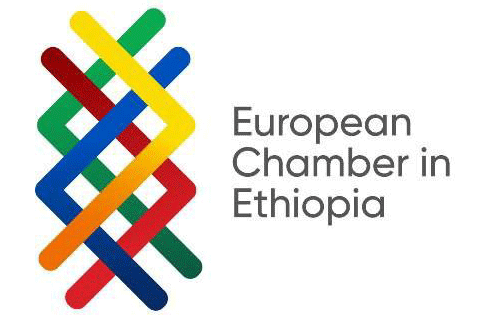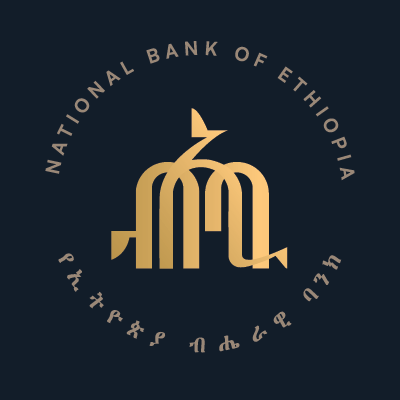The European Chamber in Ethiopia launches 2 Policy Briefs, on Forex Disbursement and Customs Administration to Propel Public Private Dialogue for improving Business Environment and Investment Climate in Ethiopia

The European Chamber in Ethiopia launches 2 Policy Briefs, on Forex Disbursement and Customs Administration to Propel Public Private Dialogue for improving Business Environment and Investment Climate in Ethiopia
A technical meeting between the Ethiopian Ministry of Finance and representatives from the European Chamber in Ethiopia (EuroCham) and the European Union Delegation was held on July 24, 2024, aiming to address key challenges faced by European foreign direct investors in the country. The meeting was attended by H.E. Ahmed Shide, Minister of Finance, alongside senior officials from the Ministry and EuroCham Board members, including leaders from various sectors such as agriculture, logistics, and manufacturing.
The Minister opened the meeting by extending a warm welcome to the Charge d’affaires of the European Union Delegation to Ethiopia, Dr. David Krivanek. He acknowledged the EU’s role as a vital trade partner, emphasizing the significance of the ‘Everything But Arms’ (EBA) initiative, which allows Ethiopian goods to enter European markets tariff-free. He noted that Ethiopia’s exports to the EU reached EUR 688 million in 2023, marking a 40% increase over the last five years and that Europe collectively constitutes the largest and most consistent development partner.
Dr. David expressed appreciation for the opportunity to engage with the Ministry and highlighted the EU’s ongoing commitment to supporting Ethiopia amid various challenges. He pointed out that the EU remains the second largest trade partner for Ethiopia and a significant source of Foreign Direct Investment (FDI). However, he outlined persistent issues hindering investment, including limited access to foreign exchange, inconsistent customs valuations, and bureaucratic hurdles.
During his remarks, Ben Depraetere, Board Chair of EuroCham, outlined several key issues impacting the investment landscape for European companies operating in Ethiopia. Among the foremost challenges are difficulties related to customs valuation and tax assessment and audit challenges that European businesses encounter. It was pointed out that the current processes often lack transparency and consistency, creating uncertainty for investors. Furthermore EuroCham stressed that the current audit appeal procedure is problematic as companies are required to deposit 50% of the tax claim in case they want to appeal and a further 25% if further appeal is required. EuroCham highlighted that unfounded tax claims can severely strain company liquidity, potentially leading to business closures. This would have detrimental consequences for employment and sustainable revenue generation. Furthermore it may open doors for corruption with auditors seeking personal gains. The Minister responded that while everyone has a responsibility to contribute to revenue generation, it should not hinder legitimate businesses. The Minister invited EuroCham to propose suggestions and best practices on tax appeal procedures. EuroCham also highlighted challenges in accessing foreign loans due to the 5% interest rate cap.
Regarding VAT, the minister explained that the increase in VAT on consumer goods is part of the drive to increase the tax to GDP rate from its current 7% to 11% in 4 years time. He emphasized that the strategy is being implemented with a focus on protecting the poor. EuroCham noted that the recent VAT reforms have removed the exemption for animal feed and vegetable seedlings. This change will affect smallholder farmers and consumers as VAT will now be passed on to end consumers for animal products and vegetables. The Minister acknowledged the remarks and assured EuroCham that the matter would be investigated further.
Finally, EuroCham pointed out significant logistical challenges within Ethiopia’s coffee sector, emphasizing the need for improved infrastructure and support systems to facilitate smoother operations for foreign investors in this vital industry. This is particularly urgent given the impending EU Deforestation Regulation, which necessitates timely shipments. The Minister took note and expressed his commitment to address the booking and system issues related to ESLE and Ethiopian Railway Corporation with the Ministry of Transport and Logistics.
The Minister concluded by emphasizing that the issues raised affected not only European investors but also all foreign investors and local businesses. Hence addressing these topics will lead to improving the business climate for all.
The meeting served as a platform for open dialogue, with participants agreeing to systematically address these challenges to enhance the investment climate in Ethiopia. During the meeting, EuroCham handed a copy of its policy briefs on tax, customs, foreign exchange and land access to the Minister. EuroCham members expressed optimism about the potential for collaboration between the chamber and the Ministry of Finance, aiming to create a more conducive environment for European FDI in the country.
latest News
The European Chamber in Ethiopia had a productive discussion with H.E.
the European Chamber in Ethiopia had a productive discussion with H.E. Mamo Mihretu the Governor of the National Bank of Ethiopia and H.E Roland Kobia, the EU Ambassador to Ethiopia.
During the meeting, Eurocham prepared and presented a Policy Brief on how to tackle the Forex Challenges, and they also discussed about issues impacting the business environment. Both the NBE leadership and Eurocham agreed to form a Technical Committee to collaborate on crafting pathways to enhance the business climate in Ethiopia.
EuroChamber's Engagements
European Chamber celebrated its 10th year anniversary on the same occasion it launched “Investor Guide”
European Chamber in Ethiopia commemorated a remarkable milestone as it celebrated its remarkable 10th year anniversary while unveiling the highly anticipated “Investor Guide” publication. Esteemed guests, including H.E. Temesgen Tilahun and H.E. Ambassador Roland Kobia, graced the momentous occasion. The Investor Guide that was launched on the same occasion provides key information on strategic sectors, economic profile of the country as well as relevant administrative requirements on establishment of businesses in Ethiopia .
PRESS RELEASE MONETARY POLICY STATEMENT
The Board of Directors of the National Bank of Ethiopia, at its regular meeting of August 7, 2023, has taken a number of policy measures to help reduce inflation in a significant and sustained manner. These measures are effective as of today.
Background
Inflation has been one of the most difficult macroeconomic challenges facing Ethiopia over a period of many years. The Ethiopian economy and population have lived with inflation for a very long time. as seen from the average inflation rate of 16 percent per year registered over the past decade. Inflation outturns over the past two years have risen even beyond this average historical rate and persisted for much longer than initially expected.
EBWERY
High inflation is damaging from both a macroeconomic perspective and from its negative impacts on the livelihoods of millions of ordinary Ethiopians. Inflation reduces the real income of those on fixed salaries and hurts the most vulnerable in society. Moreover, the longer inflation is allowed to persist, the greater the likelihood that it becomes entrenched and the more difficult in becomes to shift public expectations regarding future inflation.
Recent Inflation Outturns
Ethiopia’s latest inflation outturn as of June 2023 shows a year-on-year headline inflation rate of 29.3 percent, which has brought inflation to below 30 percent for the first time in two years. Inflation is now about 5 percentage points below the 34 percent inflation rate of a year ago (June 2022) and is also notably below the peak inflation rate of 37 percent seen in recent years. While there has thus been some modest progress, this is clearly not enough.
Food inflation, for example, is down 10 percentage points over the past year (now 28% vs 38% a year ago) but nonetheless remains high. Non-food inflation has trended upwards in recent months and is 3 percentage points higher now (31%) than it was a year ago (28%). In addition, the inflation rate seen on a monthly basis shows prices were 3.3 percent higher in June 2023 compared to May 2023, pointing to continued inflationary pressures within the economy.
Underlying Inflation Determinants and the Near-term Outlook
Various studies undertaken within NBE and elsewhere have found that a mix of supply-side constraints, cost-push factors, inflation expectations/inertia, and macroeconomic policies have been important to different degrees and at different points in time-in explaining Ethiopia’s inflation. Using latest data available to June 2023, NBE has recently undertaken a detailed empirical assessment of inflation’s underlying determinants and found that the combined impact of supply- side factors, cost-push factors (including external shocks), and expansionary fiscal/monetary policy helps explain the surge in Ethiopia’s recent inflation.
For example, some supply-side and cost-push factors found to be statistically significant in contributing to inflation have included the internal conflict that disrupted local food transport/distribution networks and the large jump in key global commodity prices (particularly for fuel, fertilizers, and freight). To take the impact of external price effects alone, between mid-2020 and mid-2022, global oil prices rose by 140%, fertilizer prices rose Close to 200%, and freight prices by around 300%; these bal prices have all since moderated as of mid-2023, but their pass-through effects for Ethiopian inflation were particularly pronounced in both FY 2021-22 and FY 2022-23.
range of internal and external shocks. Thi
At the same time, given the succession of shocks Ethiopia faced in the last few years, fiscal and monetary policies have been relaxed during this period to help address and respond to the varied has not helped in the battle against inflation, even if the looser stance of macro policies has not been the exclusive driver of Ethiopia’s inflation outturns. during this period.
Looking ahead, current global and domestic conditions present a very mixed picture for the inflation outlook. Some reduction in food price pressures is possible from the very good rainy season being experienced in most parts of the country, from the moderating headline inflation trend in most trading partners, and from the sharp year-on-year price decline seen for certain global commodities such as fertilizers. At the same time. Ethiopia’s recent pattern of month-on-month price increases
convincing manner this fiscal year. Following extensive internal analysis, and recognizing that the significant credit expansion of the past year has undermined progress in reducing inflation, the NBE has taken the decision to put in place limits on credit growth for this fiscal year-both in credit to the government and in credit to the private sector. We have accordingly put together at comprehensive package of measures aimed at reducing inflation as outlined below:
1. As an overall target, NBE will be working towards reducing inflation to below 20 percent by June 2024 and below 10 percent by June 2025.
2. For this fiscal year ending June 30, 2024, credit growth is to be limited to 14 percent, and all commercial banks will be instructed to limit the growth of their loan books to be consistent with this aggregate credit ceiling:
3. NBE is to sharply reduce Direct Advances to the Government this fiscal year and limit such lending to just one-third of the prior-year levels. Understandings are also to be reached with the Ministry of Finance to make use of this facility only as a last resort if sufficient Treasury Bills and Treasury Bonds cannot be raised in the market;
4. The interest rate at the NBE’s Emergency Lending facility, which banks utilize when they face liquidity problems, will be increased from 16% to 18%:
5. In addition, to promote a recovery in exports-particularly for manufactured exporters-the foreign exchange surrender requirement is also being reduced. Accordingly, a New Directive is being released whereby exporters of goods and services will surrender 50% of their foreign exchange proceeds to the NBE, 10% to their bank, and retain 40% for their own.
account.
Conclusion
Three aspects of the monetary policy measures being taken today are worth highlighting to ensure stakeholders understand their proper context and significance. First, these measures are slowing down credit growth but not eliminating it. Second, the decision to lower credit growth is not being taken as an end in itself, but should be seen instead as an important and necessary part of our ultimate collective objective to reduce Ethiopia’s inflation rate in a sustained manner. Third, the use of credit ceilings is a temporary arrangement to be used until mid-2024 when the NBE expects to move towards a more modern, interest-rate based monetary policy framework that will be introduced with extensive preparatory work and with the involvement of all stakeholders.
In conclusion, with a strengthened focus on its core mandate of ensuring price stability. NBE stands determined-alongside other stakeholders-to achieving a major inflation reduction in both the current and upcoming fiscal year, so that this long-standing burden faced by all Ethiopians is meaningfully and sustainably addressed in the period ahead.
convincing manner this fiscal year. Following extensive internal analysis, and recognizing that the significant credit expansion of the past year has undermined progress in reducing inflation, the NBE has taken the decision to put in place limits on credit growth for this fiscal year-both in credit to the government and in credit to the private sector. We have accordingly put together at comprehensive package of measures aimed at reducing inflation as outlined below:
1. As an overall target, NBE will be working towards reducing inflation to below 20 percent by June 2024 and below 10 percent by June 2025.
2. For this fiscal year ending June 30, 2024, credit growth is to be limited to 14 percent, and all commercial banks will be instructed to limit the growth of their loan books to be consistent with this aggregate credit ceiling:
3. NBE is to sharply reduce Direct Advances to the Government this fiscal year and limit such lending to just one-third of the prior-year levels. Understandings are also to be reached with the Ministry of Finance to make use of this facility only as a last resort if sufficient Treasury Bills and Treasury Bonds cannot be raised in the market;
4. The interest rate at the NBE’s Emergency Lending facility, which banks utilize when they face liquidity problems, will be increased from 16% to 18%:
5. In addition, to promote a recovery in exports-particularly for manufactured exporters-the foreign exchange surrender requirement is also being reduced. Accordingly, a New Directive is being released whereby exporters of goods and services will surrender 50% of their foreign exchange proceeds to the NBE, 10% to their bank, and retain 40% for their own.
account.
Conclusion
Three aspects of the monetary policy measures being taken today are worth highlighting to ensure stakeholders understand their proper context and significance. First, these measures are slowing down credit growth but not eliminating it. Second, the decision to lower credit growth is not being taken as an end in itself, but should be seen instead as an important and necessary part of our ultimate collective objective to reduce Ethiopia’s inflation rate in a sustained manner. Third, the use of credit ceilings is a temporary arrangement to be used until mid-2024 when the NBE expects to move towards a more modern, interest-rate based monetary policy framework that will be introduced with extensive preparatory work and with the involvement of all stakeholders.
In conclusion, with a strengthened focus on its core mandate of ensuring price stability. NBE stands determined-alongside other stakeholders-to achieving a major inflation reduction in both the current and upcoming fiscal year, so that this long-standing burden faced by all Ethiopians is meaningfully and sustainably addressed in the period ahead.
ጋዜጣዊ መግለጫ የገንዘብ ፖሊሲ መግለጫ
05 ነሐሴ 2005 ዓም | አዲስ አበባ + ኢትዮጵያ
የኢትዮጵያ ብሔራዊ ባንክ የዳይሬክተሮች ቦርድ ነሐሴ 1 ቀን 2015 ባካሄደው መደበኛ ስብሰባ የዋጋ ንረትን በከፍተኛ ደረጃና በቀጣይነት ሊቀንሱ የሚችሉ በርካታ የፖሊሲ እርምጃዎች እንዲወስዱና ወዲያውኑ ሥራ ላይ እንዲውሉ ወስኗል።
የፖሊሲ እርምጃዎቹ ዳራ
የዋጋ ንረት ላለፉት በርካታ ዓመታት ከኢትዮጵያ ከባድና የረጅም ጊዜ የማክሮ ኢኮኖሚ ተግዳሮቶች አንዱ ሆኖ ቆይቷል፡፡ የኢትዮጵያ ኢኮኖሚና ሕዝቡ ለረጅም ዐመታት በዋጋ ንረት ውስጥ ኖረዋል፡፡ ባለፉት አስር ዓመታት የዋጋ ንረት በአማካይ በዓመት 16 በመቶ ዕድገት አሳይቷል። ባለፉት ሁለት ዓመታት የታየው የዋጋ ንረት ደግሞ ከዚህ አማካይ የዘለለና ከተጠበቀው በላይ የቆየ ክስተት ነው፡፡
ከፍተኛ የዋጋ ንረት ከማክሮ ኢኮኖሚም ሆነ በሚሊዮን በሚቆጠሩ ኢትዮጵያውያን የዕለት ተዕለት ኑሮ ላይ ከሚያሳድረው አሉታዊ ተጽእኖ አንጻር ሲታይ ብዙ ጉዳቶች አሉት። የዋጋ ንረት ቋሚ ገቢ ያላቸው ሰዎችን ትክክለኛ ገቢ ይቀንሳል፤ ድሃ የህብረተሰብ ክፍሎችን ይጎዳል። በተጨማሪ፣ የዋጋ ንረት በቆየ ቁጥር፣ አሁን በኢትዮጵያ እንደሆነው፣ ሥር የሰደደ ስጋት ይሆናል፡፡ የዋጋ ንረት ይኖራል የሚለው እሳቤ በራሱ ለወደፊቱ የዋጋ ንረት እንዲባባስ ስለሚያደርግ ሂደቱ በጊዜ ሊገታ ይገባል፡፡
በቅርቡ የታየው የዋጋ ንረት
የዋጋ ንረት ሰኔ 30፣ 2015 መጨረሻ የ293 በመቶ ዓመታዊ ዕድገት ያሳየ ሲሆን፣ ካለፉት ሁለት ዓመታት ወዲህ ለመጀመሪያ ጊዜ ከ30 በመቶ በታች ወርዷል፡፡ ይህም ባለፈው ዓመት ተመሳሳይ ወቅት ከነበረው የ34 በመቶ የዋጋ ንረት ጋር ሲነጻጸር በ5 መቶኛ ነጥብ ቀንሷል፡፡ እንዲሁም በቅርብ ዓመታት በከፍተኛነት ከተመዘገበው የ37 በመቶ የዋጋ ንረት ዝቅ ብሏል፡፡ በዚህ ረገድ መጠነኛ መሻሻል ቢኖርም፤ በቂ እንዳልሆነ ግን ግልጽ ነው፡፡ በሌላ በኩል፣ ምግብ ነክ የዋጋ ንረት አምና ከነበረበት 38 በመቶ ዘንድሮ ወደ 28 በመቶ (በ10 መቶኛ ነጥብ) ዝቅ ያለ ሲሆን፣ ምግብ ነክ ያልሆነ የዋጋ ንረት ግን ከ28 በመቶ ወደ 31 በመቶ (በ3 መቶኛ
2. በ2016 በጀት ዓመት ሰኔ መጨረሻ የክሬዲት የባንክ ብድር ዕድገት በ14 በመቶ ባሪያ ይገደባል፡፡ በመሆኑም፣ ሁሉም ንግድ ባንኮች የብድር ዕድገት ዕቅዳቸውን በዚህ የብድር ጣሪያ መሠረት እንዲያስተካክሉ ይደረጋል፡፡
3. በያዝነው በጀት ዓመት የኢትዮጵያ ብሔራዊ ባንክ ለመንግሥት የሚሰጠውን የቀጥታ ብድር መጠን በእጅጉ በመቀነስ ከአምናው ከሲሶ (ከ13ኛ) እንዳይበልጥ፣ በሌላ አነጋገር በ25 ፐርሰንት እንዲገደብ ያደርጋል፡፡ የገንዘብ ሚኒስቴር ቀጥታ ብድርን እንደ የመጨረሻ አማራጭ የሚጠቀመው የመንግሥት የግምጃ ቤት ሰነድ በበቂ መጠን ለገበያ መቅረብ ሳይችል ሲቀር ብቻ እንደሚሆን መግባባት ላይ ተደርሷል፡፡
4. ባንኮች የጥሬ ገንዘብ እጥረት ሲገጥማቸው ከኢትዮጵያ ብሔራዊ ባንክ በሚወስዱት የአስቸኳይ ጊዜ የብድር ፋሲሊቲ ላይ የሚከፍሉት ወለድ ከ16 በመቶ ወደ 18 በመቶ ከፍ እንዲል ይደረጋል።
5 የወጪ ንግድን በተለይም የማኑፋክቸሪንግ ምርቶችን ወጪ ንግድ እንዲያንሰራራ ለማድረግ፣ የውጭ ምንዛሪ የማስተላለፍ ግዴታ ( forex surrender requirement) እንዲቀንስ ተደርጓል፡፡ በአዲሱ መመሪያ መሠረት፤ የሸቀጦችና አገልግሎቶች ላኪዎች ካፈሩት የውጭ ምንዛሪ 50 በመቶውን ለብሔራዊ ባንክ፤ 10 በመቶ ለባንካቸው ያስተላልፉና ቀሪውን 40 በመቶ ወደ ራሳቸው የባንክ ሂሳብ እንዲያስገቡ ተፈቅዷል፡፡
ማጠቃለያ
በዛሬው ዕለት የሚወሰዱ የገንዘብ ፖሊሲ እርምጃዎች አስፈላጊነትና አግባብነት ጉዳዩ በሚመለከታቸው አካላትና በመላው ህብረተሰባችን ዘንድ ሊታወቅና ተቀባይነት ሊያገኝ ይገባል፡፡ አንደኛ፣ እነዚህ የፖሊሲ እርምጃዎች የባንክ ብድር ክሬዲት ዕድገትን ይቀንሳሉ እንጂ ብድሩን ክሬዲቱን አያስቀሩም። ሁለተኛ፤ የክሬዲት ዕድገትን መግታት በራሱ ግብ ሳይሆን፣ በኢትዮጵያ የዋጋ ንረትን በቀጣይነት ለመቀነስ የሚደረግ የጋራ ዓላማችን ወሳኝ ክፍል እንደሆነ ሊታወቅ ይገባል፡፡ ሶስተኛ፣ የብድር ጣሪያ እስከ 2016 አጋማሽ ድረስ ብቻ የሚቆይ ጊዜያዊ እርምጃ ነው፡፡ ከዚያ በኋላ ባንኩ በአሁኑ ጊዜ በዓለም ላይ ያሉ አብዛኞቹ አገራት ወደሚጠቀሙበት ይበልጥ ዘመናዊ ወደሆነውና፣ በወለድ ተመን ላይ ወደተመሠረተ የገንዘብ ፖሊሲ ማዕቀፍ የሚሸጋገር ይሆናል፡፡ ይህም ሰፊ ዝግጅትና የባለድርሻ አካላትን ተሳትፎ ይጠይቃል፡፡
በመጨረሻም፣ የኢትዮጵያ ብሔራዊ ባንክ፣ በዘንድሮውም ሆነ በቀጣዩ በጀት ዓመት ከባለድርሻ አካላት ጋር በመቀናጀት ዋጋን የማረጋጋት ቁልፍ ኃላፊነቱን በትኩረት ለመወጣትና በመላ ኢትዮጵያውያን ላይ ለረጅም ጊዜ ተጭኖ የቆየውን የዋጋ ንረት በከፍተኛ ደረጃና ትርጉም ባለው መልኩ ለመቀነስ በቁርጠኝነት ይሠራል፡፡
ነጥብ) አሻቅቧል፡፡ ከዚህ በተጨማሪ፣ የዋጋ ንረት በግንቦትና በሰኔ ወር መካከል የ33 በመቶ ወርሃዊ ጭማሪ ማሳየቱ በኢኮኖሚው ውስጥ የተንሰራፋ የዋጋ ንረት ጫና መኖሩን ያመለክታል፡፡
የዋጋ ንረት መንስኤዎችና የመካከለኛ ጊዜ እይታ
የአቅርቦት ውስንነት፣ የማምረቻ ወጪ መጨመርና ማክሮ ኢኮኖሚአዊ ፖሊሲዎች በተለያየ ደረጃና በተለያዩ ጊዜያት በኢትዮጵያ ለዋጋ ንረት መንስኤ እንደሆኑ የኢትዮጵያ ብሔራዊ ባንክና ሌሎች አካላት ያደረጓቸው የተለየዩ ጥናቶች ያሳያሉ፡፡ የኢትዮጵያ ብሔራዊ ባንክ ሰኔ 2015 ባደረገው ዝርዝር ግምገማ የአቅርቦት ውስንነት፣ የማምረቻ ወጪ መናር (ውጫዊ ምክንያቶችን ጨምሮ) እና ልል የፊስካልና የገንዘብ ፖሊሲዎች በድምሩ በኢትዮጵያ ለተከሰተው የዋጋ ንረት አስተዋጽኦ እንዳላቸው አመልክቷል። ለምሳሌ፣ ለዋጋ ንረት አስተዋጽኦ ላላቸው አንዳንድ የአቅርቦት ውስንነትና የማምረቻ ወጪ መኖር ምክንያት ከሆኑት መካከል የምግብ ትራንስፖርትና ስርጭትን ሂደት ያስተጓጎሉ የሀገር ውስጥ ግጭቶችና በዓለም አቀፍ ደረጃ የቁልፍ ሸቀጦች (በተለይ የነዳጅ፣ ማዳበሪያና ትራንስፖርት) ወጪ መጨመር ይገኙባቸዋል፡፡ እ.አ.አ. በ2020 አጋማሽ እና በ2022 አጋማሽ መካከል በዓለም አቀፍ ደረጃ የነዳጅ ዋጋ 140 ፐርሰንት ፤ የማዳበሪያ ዋጋ በ200 ፐርሰንት፣ የማጓጓዣ ወጪዎች በ300 ፐርሰንት አድገዋል። ከዚያን ጊዜ ወዲህ ዋጋዎቹ በመጠኑ የረገቡ ቢሆንም፤ የእነዚህ ሸቀጦች የዓለም ዋጋ ጫና በ2014 እና በ2015 በጀት ዓመታት በኢትዮጵያ ለተከሰተው የዋጋ ንረት አስተዋጽኦ አድርጓል።
እንዲሁም፣ ባለፉት ጥቂት ዓመታት በኢትዮጵያ በተከታታይ በታዩ ውስጣዊና ውጫዊ ክስተቶች፣ ማለትም ኮቪድ፣ ግጭት፣ ድርቅ፣ ዓለም አቀፍ የጂኦ ፖለቲካ ሁኔታዎች ) የተነሣ የፊስካልና የገንዘብ ፖሊሲዎች ላላ እንዲሉ መደረጉ ይታወቃል። በዚህ ጊዜ ውስጥ የማክሮ ኢኮኖሚ ፖሊሲዎች ለዋጋ ንረት ብቸኛ ምክንያቶች ባይሆኑም፤ የዋጋ ንረትን የመዋጋት ሥራን አንዳልደገፉ አይዘነጋም፡፡
መጪውን ጊዜ በተመለከተ፣ አሁን ያሉ ዓለም አቀፋዊና ሀገራዊ ሁኔታዎች ስንመለከት የዋጋ ንረትን ሊቀንሱ አንዳንዴም ሊያባብሱ የሚችሉ ስጋቶች አሉ፡፡ በአገራችን በብዙ አካባቢዎች ከታየው መልካም የዝናብ ሁኔታ የተነሣ፤ እንዲሁም ከንግድ አጋር አገራት የዋጋ ንረት መውረድና በዓለም አቀፍ ደረጃ የአንዳንድ ሸቀጦች ( ለምሳሌ ማዳበሪያ) ዋጋ መቀነስ ጋር ተያይዞ የምግብ ዋጋ በመጠኑም ቢሆን አንደሚረግብ ይጠበቃል። ይሁን እንጂ፣ በኢትዮጵያ በቅርቡ ከተመዘገበው ወርሃዊ የዋጋ ንረት ፣ እንዲሁም በአገር ውስጥ ካሉ የአቅርቦት ተግዳሮቶችና በዓለም አቀፍ ደረጃ ከአንዳንድ የሸቀጦች ( ለምሳሌ የነዳጅና የጥራጥሬ እህል) ዋጋ የመጨመር አዝማሚያ አንጻር ሲገመገም፣ የዋጋ ንረትን ለመቀነስ ለሚደረገው ጥረት እንቅፋት ሊሆኑ የሚችሉ ጉዳዮች እንዳለ ማየት ይቻላል፡፡ በመሆኑም፣ በመካከለኛው ጊዜ የዋጋ ንረት ስጋት እንደሚኖር ታሳቢ በማድረግ የዋጋ ንረትን በከፍተኛ ደረጃና በቀጣይነት ለመቀነስ ተገቢና ቁጥብ የፖሊሲ እርምጃዎችን መውሰድ ያስፈልጋል።
ለዘላቂ መፍትሔ የቅንጅታዊ አሠራር አስፈላጊነት
ለዋጋ ንረት አስተዋጽኦ ያደረጉ ምክንያቶች በርካታ እንደመሆናቸው፣ የኢትዮጵያን የረጅም ጊዜ የዋጋ ንረት ችግር ለመቅረፍ የሚረዳው መፍትሔ የብዙ ወገኖችንና ዘርፎችን የተቀናጀ ተሳትፎ የሚጠይቅ ነው፡፡
2
የአቅርቦት ማሻሻያ እርምጃዎች፡- በሸማቾች የዋጋ ኢንዴክስ የ54 በመቶ ድርሻ ያለውን የምግብ ዋጋ ወሳኝነት ግምት ውስጥ በማስገባት፣ የምግብ አቅርቦትን ለማሻሻል ምርትና ምርታማነትን ማሳደግ ቁልፍ ነገር ነው፡፡ በዚህ ረገድ፣ የሚታረሰውን መሬት ስፋት ለመጨመር፣ የውሃ መስኖን ለማስፋፋት፣ የኩታ ገጠም እርሻን ለማበረታታት፣ የግብርና ሜካናይዜሽንን ለማስፋፋት፣ የቆላማ አካባቢዎችን ግብርና ለማለማመድ፣ በስፋት ለፍጆታ የሚውሉ ሰብሎችን (ስንዴ፣ አትክልትና ፍራፍሬ) ምርት ለማሳደግ የተቀናጀ ጥረት ማድረግ ያስፈልጋል፤ ሊቀጥልም ይገባል፡፡ በሌሎች ቁልፍ የሸቀጦችና የአገልግሎቶች ምርት ረገድ ፣ በተለይም ሲሚንቶ፣ የመኖሪያ ቤቶች ግንባታ፣ ትራንስፖርት በመሳሰሉ ዘርፎች ያለውን አቅርቦት ማስፋፋት አስፈላጊ ነው፡፡
መዋቅራዊ እርምጃዎች፡- የትራንስፖርት አውታሮችን፣ የሎጂስትክስ ሥርዓትንና የንግድ ሥራ ተወዳዳሪነትን ለማሻሻል የሚረዱ መዋቅራዊ እርምጃዎችን መውሰድ በተለይ በረጅሙ ጊዜ፣ የአቅርቦት ሰንሰለትን ለማሳለጥና የምርት ገበያን ይበልጥ ተወዳዳሪ ለማድረግ ብሎም ለወደፊቱ የዋጋ ጫናን ለማርገብ ይጠቅማል፡፡
የፊስካል ፖሊሲ፡- ከላይ ከተጠቀሱት የአቅርቦትና መዋቅራዊ እርምጃዎች በተጨማሪ ፊስካል ፖሊሲም የበኩሉን ሚና ሊጫወት ይገባል፡፡ በተለይ ባለፉት ሁለት ዓመታት ባጋጠሙ ተከታታይ ጫናዎች ( ኮቪድ፣ ግጭት፣ ድርቅ) – የመንግሥት የወጪ ፍላጎት እንዲጨምርና የገቢ ዕድገት እንዲቀንስ በማድረጋቸው የኢትዮጵያ የፊስካል ተግዳሮት ከፍ ብሏል፡፡ የመንግሥት የበጀት ጉድለት በከፍተኛ ደረጃ ጨምሯል፣ የውጭ ብድርና እርዳታ ውስን በመሆኑ፣ አብዛኛውን የበጀት ጉድለት ከሀገር ውስጥ የገንዘብ ምንጮች፤ በተለይም ከኢትዮጵያ ብሔራዊ ባንክ በሚገኝ ብድር፤ መሸፈን ግዴታ ሆኗል፡፡ ለመጪው ዓመት ግን፣ መንግሥት የዋጋ ንረትን ለመቅረፍና ማክሮ ኢኮኖሚአዊ መረጋጋትን ለማስፈን ሲባል መርሃዊ አቋም ይዟል፤ የመንግሥት ወጪ ዕድገት በእጅጉ ተገድቧል፤ ከጠቅላላ የሀገር ውስጥ ምርት አኳያ የበጀት ጉድለት በ2016 በጀት ዓመት እንዲቀንስ ተደርጓል፡፡ ይህም መንግሥት ከሀገር ውስጥ ባንኮች በተለይም ከማዕከላዊ ባንክ የሚኖረውን የፋይናንስ ፍላጎት እንዲቀንስ ያደርገዋል፡፡
የኢትዮጵያ ብሔራዊ ባንክ ልዩ ሚና
የኢትዮጵያ ብሔራዊ ባንክን በተመለከተ፤ ባንኩ ፤ በተለይ ከአጭር ጊዜ አኳያ ለዋጋ ንረት መርገብ የሚያደርገው አስተዋጽኦ ወሳኝ ነው፡፡ በመሆኑም፣ የኢትዮጵያ ብሔራዊ ባንክ የዳይሬክተሮች ቦርድና ሥራ አመራር በያዝነው በጀት ዓመት የዋጋ ንረትን ለመቀነስ ቅድሚያ ስጥተው በቁርጠኝነት ለመሥራት ተነሣሥተዋል። ሰፊ ውስጣዊ ግምገማ በማድረግና ያለፈው ዓመት የብድር ዕድገት የዋጋ ንረት የመቀነስ ጥረታችንን ማስናከሉን በመረዳት በዘንድሮው በጀት ዓመት ለመንግሥትም ሆነ ለግሉ ዘርፍ በሚሰጠው ብድር ዕድገት ላይ ገደብ ለማስቀመጥ ወስነናል፡፡ ከዚህም በመነሣት የዋጋ ንረትን ለመቀነስ የሚወስዱ አጠቃላይ እርምጃዎችን እንደሚከተለው አስፍረናል፡-
1. እንደ አጠቃላይ ግብ፣ የኢትዮጵያ ብሔራዊ ባንክ የዋጋ ንረትን በ2016 በጀት ዓመት ሰኔ መጨረሻ ከ20 በመቶ በታች፣ በ2017 ደግሞ ከ10 በመቶ በታች ለማውረድ ይሠራል።












